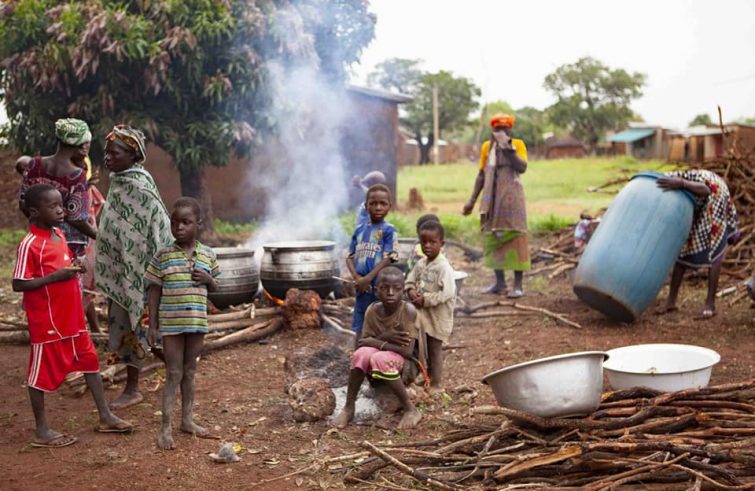
“The fallout of the Ukrainian war on African economies primarily involves, in the short term, the blockade of Ukrainian wheat exports to countries in the Middle East and North Africa, starting with Egypt.” Somalia and Sudan are also facing serious crises, with the latter still facing civil unrest against the coup government. Father Antonio Guarino, a Comboni missionary in Zambia, an aid worker living in Sudan and a Salesian missionary in Ethiopia, report on the situation.
Zambia’s debt default. “The Southern African Development Community, Sub-Saharan and Southern Africa, are still shielded from a direct and short-term crisis caused by the war in Eastern Europe”, says Father Guarino. “But the whole continent is highly dependent on foreign imports – not just grain but also fertilisers, fuels, farming machineries and even crude oil.” The fallout is inevitable. The blockade of the Black Sea ports poses a problem for everyone.
“Zambia is not an island, it is a nation heavily dependent on imports of fuel, fertilisers from Russia and different kinds of machinery”,
writes analyst Alexander Nk on Zambia Watchdog, a local think tank, mentioned several times by the missionary. Yet there are also unexpected advantages, Father Guarino points out. For instance, the resumption of exports of Copper, of which Zambia once was the largest producer. “It would seem that copper prices have risen again in the wake of the war, and this may be an advantage for Zambia, given its default status”, with many of its copper mines closing over the past few years.
Wheat in Arab countries. The wheat blockade remains the biggest problem in Africa at the moment, as Ukraine has to meet its own domestic needs. According to Arab Reform Initiative think tank, per capita wheat consumption in Arab countries (North Africa and the Middle East) including Lebanon, Tunisia, Jordan, Sudan and Morocco, stands at around 128.4 kg per year. In contrast, the total per capita consumption of the rest of the world is only 65.4 kg.
Heavy fallout in Sudan. The war in Ukraine is having a heavy impact on food security here,” says an aid worker from Khartoum, Sudan, who prefers not to be mentioned by name. “Based on available data”, she adds, “we expect a 10 per cent increase in malnutrition across the country, with 153,000 more affected persons by September. The causes are linked to the ongoing war, the economic crisis and poor harvests.”
Yemen and Egypt: “essential food.” The domino effect of Ukraine’s war has hit Yemen, devastated by a proxy war that has lasted more than eight years. According to the Arab World Initiative, Yemen imports over 40 per cent of its wheat from Russia and Ukraine. The Washington-based Brookings Institution, which has just released a report on this subject, writes:
“the Yemeni tragedy is likely to deteriorate because of Russia’s war on Ukraine.”
Both countries supply “30 to 40 per cent of wheat supplies to Yemen,” reads the report. Yemen imports 95 per cent of its basic necessities from Western and Eastern countries. Prices are bound to rise, not only of wheat but also of fertilisers and fuel.” Egypt (Moscow’s historic ally, which announced it would stay “neutral” with regard to the ongoing war) is also facing serious challenges: 85 per cent of its wheat imports come from Russia and Ukraine. Bread is an “essential food” in Egypt, somewhat like rice is in China.
Ethiopia friend of Russia and China. A Salesian missionary in Ethiopia explains how alliances have collapsed in the Horn of Africa country, where the Tigray conflict is still raging, even though it no longer hits the headlines. “Soaring wheat prices are not yet a topic of discussion here in Addis Ababa,” the priest, who prefers to remain anonymous, writes in a message, “but it will certainly be an explosive issue at some point.” The fact is that “Ethiopia’s
Tigray war has not yet been resolved, and as long as it is not settled, for us, everything else is of secondary importance”,
he says. It must be said, however, that Ethiopia is openly siding with Russia and China. The priest notes an interesting dynamic: “Ethiopia is expecting to receive aids from these two countries (one of which, incidentally, is engaged in an armed offensive!) and the Addis Ababa government is at odds with the United States because of the latter’s harsh criticism for having sparked off the conflict in Tigray” and for “impeding humanitarian aid to the besieged region of Tigray.” This is why Ethiopia represents a veritable geo-political “trap”, whereby the continuation of the conflict in Ukraine will only make things worse.
*editorial staff, Popoli e Missione


